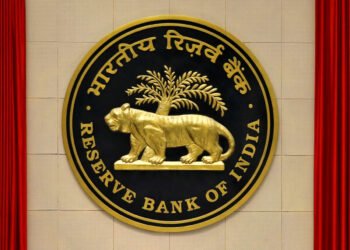Mumbai | By Economy India
India’s capital market is on the cusp of a significant reform. The Securities and Exchange Board of India (SEBI) is considering the launch of a regulated trading platform for companies preparing to go public, in a move aimed at enhancing transparency, improving price discovery, and widening investor participation.
The announcement came from SEBI Chairman Tuhin Kanta Pandey, who on Thursday indicated that the regulator is working on a framework that would allow IPO-bound companies to trade their shares before formal listing, after making certain disclosures. According to Pandey, the initiative will likely be launched on a pilot basis, marking a new chapter in India’s evolving capital markets.
What the Proposed Platform Means
Currently, companies preparing for an IPO undergo a lengthy process that involves regulatory filings, due diligence, roadshows, and approval from SEBI. During this time, investors typically have little visibility into company performance or valuation until the final IPO price band is announced.
The proposed regulated platform seeks to address this gap by:
- Allowing pre-IPO trading of shares under SEBI supervision.
- Ensuring companies disclose key financials and governance details before participating.
- Giving institutional and accredited investors access to companies at an earlier stage.
- Creating a more transparent pathway between private equity/venture capital financing and public market listing.
Essentially, this platform would serve as a halfway house between private markets and public exchanges, ensuring companies are IPO-ready while giving investors early insights into their potential.

SEBI’s Vision: Enhancing Price Discovery
One of the biggest challenges in India’s IPO ecosystem has been valuation mismatches. Startups and new-age tech companies often enter the market with aggressive price bands, leading to high volatility post-listing.
Pandey emphasized that pre-IPO trading under a regulated framework would bring better price discovery. By allowing a company’s shares to trade on this special platform, market forces will determine a fairer valuation ahead of the official IPO. This could reduce the gap between expectations and reality, ensuring more sustainable outcomes for both issuers and investors.
Impact on Startups and Emerging Companies
India’s startup ecosystem has witnessed an IPO boom over the last few years, but with mixed results. While some issues have been oversubscribed, others have faced steep corrections post-listing, eroding investor confidence.
A regulated pre-IPO platform could:
- Help startups validate their valuations before going public.
- Build credibility by ensuring compliance and disclosure standards.
- Offer alternative fundraising avenues at a crucial growth stage.
- Allow early investors (venture capital, private equity funds) to partially exit investments.
For companies, this means a smoother transition into public markets. For investors, it offers early exposure to companies that may become tomorrow’s large-cap leaders.
Global Parallels: How Other Markets Do It
Globally, pre-IPO trading is not new. Markets such as the U.S. (via private secondary markets and SPAC structures) and Europe (alternative trading platforms) have experimented with different models. However, India’s regulatory landscape has historically been cautious, prioritizing investor protection.
If SEBI’s proposal materializes, India could become one of the first major emerging markets to implement a structured, regulator-led pre-IPO trading framework. Experts say this could enhance India’s attractiveness as an investment hub and align its practices with global capital market standards.
Investor Benefits and Risks
While the proposed system brings opportunities, it also comes with certain risks.
Benefits:
- Early Access: Investors get entry before IPO pricing is finalized.
- Transparency: Companies disclose key details under SEBI norms.
- Diversification: More investment options beyond listed stocks.
- Fair Pricing: Valuations driven by real market demand.
Risks:
- Liquidity Constraints: Pre-IPO shares may not be as liquid as listed stocks.
- Higher Volatility: Early-stage companies often face sharp valuation swings.
- Regulatory Challenges: Ensuring compliance across multiple companies could be complex.
SEBI is expected to implement safeguards to balance these aspects, such as limiting participation to qualified institutional buyers (QIBs) in the initial phase, before opening gradually to retail investors.
Market Reaction and Industry Views
The announcement has sparked interest across financial circles. Investment bankers, private equity firms, and venture capitalists have welcomed the move, noting that it could help bridge the gap between private valuations and public market appetite.
A leading investment banker commented:
“This could be a turning point for India’s IPO ecosystem. Companies will have to be more accountable in their disclosures, and investors will gain early exposure under a transparent system. It will professionalize the pre-IPO phase.”
Meanwhile, some analysts have urged caution, pointing out that over-regulation or complex compliance requirements could discourage startups from participating.
The Road Ahead
SEBI has not yet released a formal framework, but early indications suggest that the regulator may begin with a pilot phase, involving a select group of companies. The learnings from this experiment will shape the broader rollout.
The initiative aligns with India’s broader ambition to strengthen its financial markets, attract global capital, and encourage innovation in fundraising mechanisms. If successful, it could also reduce dependency on overseas markets where Indian startups often seek secondary fundraising before IPOs.
SEBI’s proposed regulated platform for IPO-bound companies is more than just a technical reform — it represents a structural shift in India’s capital markets. By enabling pre-IPO trading under regulatory oversight, SEBI is paving the way for greater transparency, improved valuations, and deeper investor participation.
For India’s rapidly expanding startup ecosystem, this move could provide a much-needed boost in confidence and credibility. For investors, it opens new doors to early opportunities. While challenges remain in execution, the initiative has the potential to reshape the IPO landscape and reinforce India’s position as a leading investment destination.
(Economy India)













